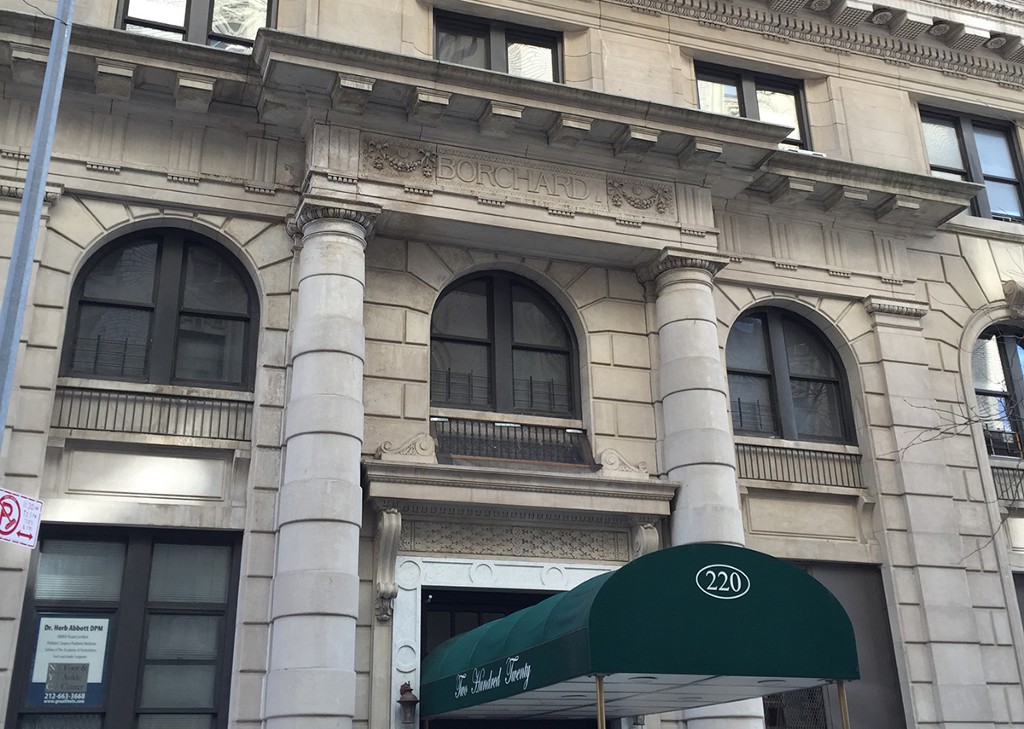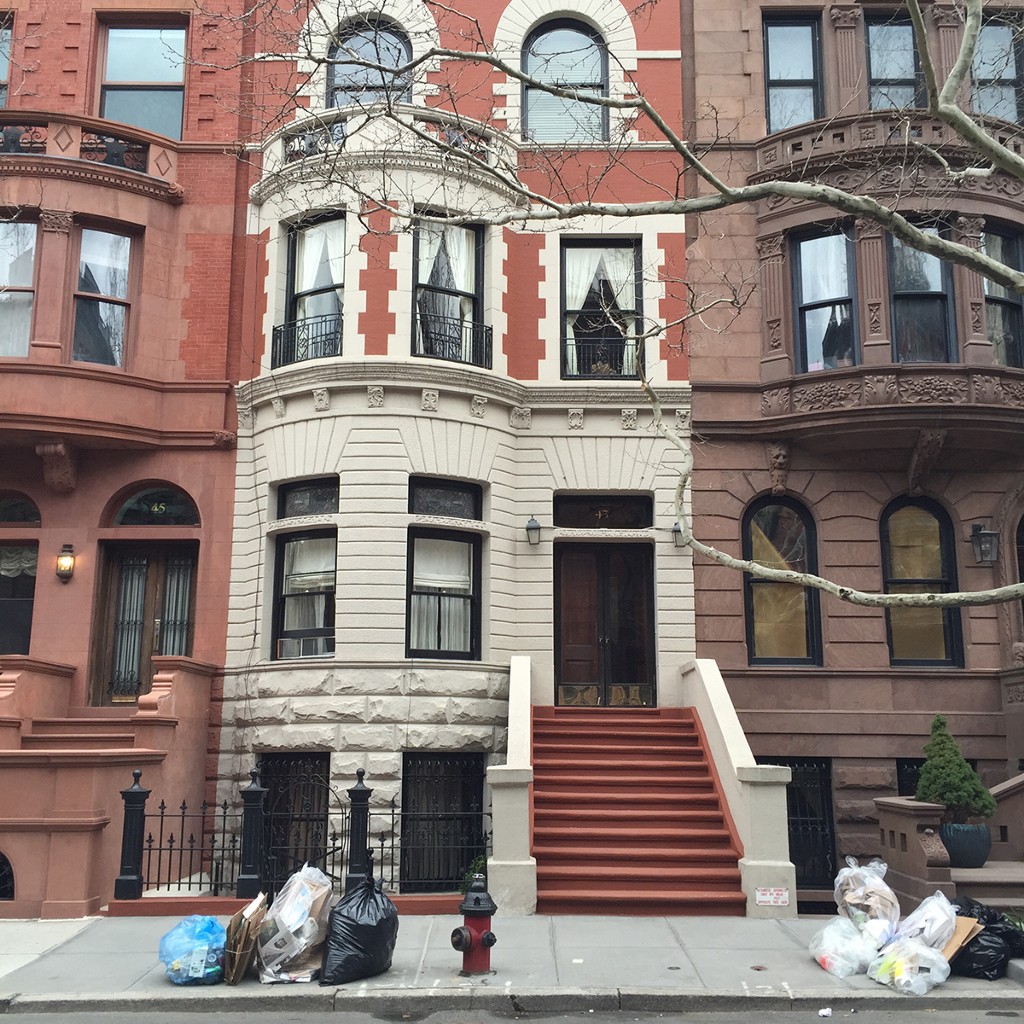Director George Miller Explains Everything About "Mad Max"
by The Awl
From Eve Ensler to Mel Gibson and back again.
New York City, April 16, 2015

★★★★ Something that was not a pigeon or a gull circled in the sky. Cool air came in through the window. Children were out on the plaza deploying bubbles; behind Trumpville, the line of forsythia along the top of the parking garage was uninterrupted yellow. The light laid a silvery coating on everything. More leaves were emerging, as of course they would, as leaves do. The baby twins from the old apartment building came walking along the block, upright and under their own power. A deeper chill had come on to make the walk up to the grocery store for dinner less than the anticipated delight, but still more than a chore.
Synonyms for the Current Economy, Ranked

26. The bubble economy
25. The digital capital economy
24. The sharing economy
23. The 1099 economy
22. The disruption economy
21. The post-post-capital economy
20. The contract-worker economy
19. The part-time economy
18. The freelance economy
17. The Uber economy
16. The app economy
15. The API economy
14. The gig economy
13. The on-demand economy
12. The middleman econonmy
11. The transitional economy
10. The de-formalized economy
9. The flexible economy
8. The logistics economy
7. The algo(rithm) economy
6. The post-employment economy
5. The servant economy
4. The optimized economy
3. The disintermediated economy
2. The pre-post-human economy
1. The perfect economy
Teach and Frisk
by Leighton Woodhouse

At the front of the one-classroom schoolhouse in the Mar Vista Gardens housing project in Culver City, California, a handful of high school students and their teacher sit in a circle and participate in small group discussion. Behind them, a dozen or so students who have opted to engage in independent study work silently at their desks. The volume of the class rarely rises above the level of a friendly dinner table conversation.
Affluent families all over the country pay upwards of thirty-thousand dollars a year in private school tuition for settings like this. But this classroom, where students learn about astronomical research in Antarctica from a visiting CalTech scientist, tend to an organic vegetable garden, and practice non-violent conflict resolution, is part of Central High, a Los Angeles Unified School District alternative school for would-be dropouts, which operates out of sixteen sites from San Pedro to North Hollywood.
Yet the man running this class, a forty-two-year-old former public interest lawyer named Vitaly, may be on the brink of being fired. For the last four years, he has refused to conduct mandatory in-class weapons searches of his students — which the district argues keeps classrooms safe — because he believes that the policy is unethical and would destroy everything that makes his classroom successful.
Last year, when two rival cliques emerged among the girls in the class, Vitaly set the regular curriculum aside for two weeks, guided the students through discussions about their feelings, cultural definitions of masculinity and femininity, and what it means to be supportive of one another. “What Vitaly has created in his classroom is one of probably two or three examples of real restorative justice that I’ve seen in my whole career,” Steve Zimmer, the school board member who represents the district that includes Mar Vista Gardens, told me. “It is not a classroom based on power. It is a classroom based on co-existing interdependency.”
Born in Soviet Ukraine, Vitaly immigrated to the United States in the late seventies and grew up in the San Fernando Valley. (An immigration officer mangled his birth name when he was a child; as an adult, he has opted to be mononymous.) As a lawyer, he founded a campus-based legal access project for LGBTQ youth in San Francisco which remains in operation today. He grew disillusioned with the law as a vehicle for social change — “as an attorney, you’re really just putting Band-aids on gunshot wounds,” he says — and decided he could make more of an impact as an educator. When Central High administrators invited him to join their faculty, they allowed him to essentially write his own job description, and Vitaly has since largely taught youth of color, queer students and homeless kids.
Nationally, poor kids of color — the student population Vitaly’s class is drawn from — are disciplined by school administrators at a higher rate than their white, middle-class counterparts for comparable behavior, beginning as early as preschool. (In fact, the racial disparity holds true even when controlling for income level.) Racial bias is a factor, as is the zero-tolerance ethos adopted by many low-income schools. One of the most comprehensive studies of its kind, based in Texas in 2011, determined that when a student is suspended or expelled, his or her likelihood of becoming involved with the juvenile justice system the next school year nearly triples. Findings like this suggest that an over-reliance on punishment in low-income schools actually promotes future criminal behavior among poor youth of color.
Opponents of LAUSD’s mandatory weapons search policy see it as an outgrowth of this punitive regime. Victor Leung, an attorney with the ACLU of Southern California, which has called for either reform or elimination of the rule, told me that it “hurts school morale and undermines the relationship between students and educators. It also contributes to the school-to-prison pipeline by making students feel like criminals.”
The LAUSD has required random daily metal detector searches since 1993, but for years, enforcement of the policy was not a high priority. That changed in 2011, after two kids were shot at Gardena High. A special education student who feared for his safety on the walk to and from campus brought a loaded Beretta handgun to school in his backpack. When he set the bag down on a table in class, the pistol went off; a single bullet struck a fifteen-year-old boy in the neck, then hit a fifteen-year-old girl in the head. One of the victims sued the school district, arguing that it endangered students by failing to enforce its search policy.
Sometime that year, according to Vitaly, Central High School’s principal announced that teachers would be required to perform routine random searches of students, using metal detector wands. Earl Perkins, an assistant superintendent for the district, described the standard search procedure to me this way: A group of three or four specially trained administrators enter a classroom and select students from the roster at random — by, for instance, throwing a die, or choosing every third name on the list. They lead students into a separate room, go through their bags, and scan their bodies with a metal detector wand. “Teachers do not do the metal detections,” Perkins said.
Central High’s Mar Vista Gardens classroom is an exception to that rule. As the only certified district staff member on site, Vitaly has been directed repeatedly to personally carry out the searches, and he has consistently refused. “I didn’t sign up to be a prison guard, I didn’t sign up to be a police officer,” he says. “I signed up — I thought — to be an educator.” After refusing to comply with the order during the 2011 school year, Vitaly was offered a compromise: His direct supervisor, Janine Antoine, would carry out the searches in his classroom, with the assistance of a tutor. For the next two or three months of 2012, and again for a few months the following year, Antoine performed the periodic searches. The experience was unpleasant for everyone, including Antoine, Vitaly recalls. “Personally, it made me quite anxious,” Jessica Fassinger, a former student of Vitaly’s who was searched at that time, told me. “There were a few people who were angry about it. At that point I was a little bit scared.”
At the start of the current school year, when Antoine told Vitaly that she no longer had time to conduct the searches, and that he would have to begin doing them himself, he refused again. “What concerns me is that you’re teaching your students that they shouldn’t have to expect to be searched,” Vitaly remembers Assistant Principal Gary Martinez telling him. “When they go to court, they have to be searched. Every time they’re stopped by the police, they’re going to have to be searched.” (Martinez declined to be interviewed.)
Valeria Del Campo, one of Vitaly’s current students, remembers being searched when she was enrolled at Venice High. “I had a lot of private stuff that I would carry around with me,” she says. “And it was just being emptied out for everyone to see. That made me feel kind of like a criminal.” She’s convinced the kids weren’t being selected at random. She recalls that it was typically the classroom teacher who picked which kids would be searched, not a roll of a die by an impartial school administrator, and the selections fit a profile. “It was never a student who sat in a front row seat that would always do their work. And it was majority Latino students and African American.” White students were “never picked,” she claims.
Perkins insists that the process for selecting which classrooms and students to search is random, and that the data reflect it. Each year, he told me, he pulls about six weeks’ worth of search logs from a sample of schools to analyze how they implement the policy. The records, he says, show the searches are being conducted at random in a non-discriminatory manner. A student in an AP classroom, a special education classroom, and a gifted magnet classroom are “all treated the same way.”
When I reviewed six months’ worth of search logs from a sample of sixteen LAUSD secondary schools, I found that while the frequency of searches varied widely from school to school, there was no pattern indicating that searches were more common at low-income schools than at middle-income schools. (There was no way to measure racial profiling or discriminatory enforcement within a school from the data available in the search logs, however, nor is it clear how accurate or complete the search logs are.)
Zimmer, the school board member, believes that the policy is “highly problematic.” He also believes it serves a purpose. “The act itself is a dehumanizing experience,” he says. “It is antithetical to the type of school communities that we are trying to create.” Still, he believes that most students want weapon searches: “Kids want to feel safe.”
In a three-page letter to three Central High administrators, Vitaly conceded that the search policy might be necessary at more dangerous schools, but that in his classroom, it was demonstrably unneeded. He argued that “equity does not mean treating everyone the same,” and that policies “must be customized to fit the circumstances and climates of our respective campuses.”
But when it comes to due process, treating everyone the same is, in fact, precisely what equity means. “I agree with Vitaly — about his classroom,” Zimmer says. But as a matter of basic fairness, Zimmer insists, the search policy must be applied to every one of LAUSD’s six hundred and fifty thousand students on an equal basis.
In any case, Zimmer believes that metal detector searches do not have a long future at LAUSD. In 2013, the district adopted a “School Climate Bill of Rights” aimed at diverting students away from “zero tolerance” disciplinary measures such as arrests, suspensions and expulsions and toward counseling. The resolution included a commitment to “restorative justice,” which the school district describes as “a philosophy and an approach to discipline that moves away from punishment” and that regards students who misbehave as engaged members of a community rather than as problems to be managed by adults. In a memo to LAUSD principals, Earl Perkins described the new approach as a “paradigm shift.”
Zimmer regards Vitaly’s classroom as a pinnacle of the district’s new philosophy, even though it directly conflicts with randomized weapons searches. “I don’t think that this policy has a permanent half-life,” Zimmer says of the metal detector searches. “I think we’re going to be in a place where we’re going to reconsider this policy in the coming years. Maybe sooner than we think.”
Vitaly hopes that he will still have a job when that moment arrives.
Photo by Christopher Webb
So You've Been Publicly Reviewed

“The actual beating is — surprise! — exponentially worse.” — Choire on the relatively low stakes of the particular kind of internet shaming that is the central concern of Jon Ronson’s new book, which seems to show that, for a certain kind of straight white men, the most terrible form of abuse imaginable is being mocked on Twitter, even though they, more than anyone else, largely seem to do just fine in the end
Photo by jenny downing
Dentist Fake, Terror Real
“You hear about things like this. You never think it’s gonna happen to you and here I am and it’s happening.”
— Riverdale dentist Jeffrey Schoengold discusses his office manager, Valbona Yzeiraj, “arrested Thursday on accusations of masquerading as a dentist at a Bronx dental office and charged in a 13-count indictment with pulling teeth and even performing root canals.” As someone with a pervasive, longstanding phobia of dentistry I find this horrifying, but perhaps the most frightening part of all is Dr. Schoengold’s quote up there. “You hear about things like this.” REALLY? DO YOU? Do dentists sit around at their dentist bars talking about how they had to let another office manager go because she was impersonating a dentist and pulling teeth while they were away? Is this a regular bit of chit-chat amongst the dentarati? “She seemed fine when I hired her off of Craigslist, but I ran out to get my dry cleaning one afternoon and when I got back she was wearing my white coat and draining an abscess on a walk-in patient.” Oh my God, I am never going near a dentist’s office again.
New York City, April 15, 2015

★★★★★ The wage-protest march came rattling and chanting around the corner down below, across Amsterdam, and up the sidewalk. Dancers and their shadows stepped and turned; brass instruments gleamed; a cymbal flashed. In the quiet afterward, some meadow bird, a blackbird or oriole, glided over the new apartment building with a flare of color and dropped out of sight. The fountain of the apartment to the north sprayed its streams with no particular symmetry or structure. At 68th there were leaves out — leaves! — on the shortest trees on the Broadway median. Lines of schoolchildren, presumably exiled so as not to disturb other students’ high-stakes testing, processed this way and that. Six minutes was too long, much too long, to wait underground for a train. Shirtsleeves were out, and thighs. A man in a suit, necktie blowing back in the breeze, clambered up a low concrete barrier by Columbus Circle and teetered there for a moment, considering a perilous jaywalk. Downtown the heating posts were radiating unnecessary comfort at the sidewalk lunch tables. It was time to flee the dimness of the office for the roof, till the mounting fear of sunscreenlessness outweighed the dread of the dark. Helicopters stood still in the late-day sky and sirens blared in traffic. There was just enough of a chill gathering on the evening to warn that that was not to be taken for granted.
The Lease Busters
by Brendan O’Connor

220 West 98th Street, #4
• $3,650 per month
• 2 bedrooms / 1 bathroom
• Nearest subway: 1/2/3 trains at 96th Street
Flip is a startup which makes it easier to break leases. The app is still in beta, but its founder, Susannah Vila, who is finishing up her MBA at Columbia University, has introduced to fellow students at Columbia who are looking to get out of their leases. “The idea came about just because I am the number one customer for it,” Vila told me. “I just love to move. I’ve moved three times since starting business school.” Vila is currently on two leases: She lives in Lower Manhattan, on East Broadway, and sublets her previous apartment. “It’s silly that you get constrained and stuck into leases by the year — you should just be able to move in and out of apartments whenever you want.”
“By signing a lease, you commit yourself to financial obligations not too far removed from a car loan or a home mortgage,” reads a New York Times article about lease-breaking from 2012. “Those who break a lease should expect to shell out some money, as they could wind up paying rent for the remaining months of the contract.” One way around this, though, is to find a new, qualified renter to whom you can “assign” the lease — New York state law requires landlords to let you out of your lease within thirty days if you provide such a tenant.
On Flip, users apply to take over the lease on other user’s apartments, for a price — this two-bedroom on the Upper West Side costs two hundred dollars, for example. “We want to make it really frictionless for people to get in and out of leases, and by virtue of removing that friction we actually make the lives of landlords and property management companies a lot easier,” Vila said. “They waste a lot of time dealing with the kind of admin work and holding renters accountable when it comes to renters breaking their leases, and with a lot of people coming in to try and take over those leases who might not be qualified.”
“What property management companies have said to us is, if you send us people who aren’t going to waste our time because they’re qualifiable financially, and you make sure that everything we need to check all our boxes is done the first time, you’re saving us time and we would sign up for that,” Vila said. “We need to include them for it to work.”
The apartment at 220 West 98th Street, which I found through Streeteasy, is currently leased to Eliza, a classmate of Vila’s who is also finishing her MBA at Columbia, and who wants to travel this summer — or maybe found a cookie company, she said — before starting a job in November. “If I had just broken my lease, which I was planning to, I’m probably not going to tell them ahead of time,” Eliza said. “So it’s not until I am about to move out that they realize they need to start marketing the apartment, whereas if I find somebody they basically could turn this apartment around in a few days or a week as opposed to the month that it would take for them to find a broker and to take photos and bring people and show it and all that kind of stuff.” She added, “And I’m sure I would lose my deposit.” Her security deposit is seven thousand dollars.
“I feel like in New York if you’re a renter, the landlords hold all the power, they hold all the cards,” Eliza said. “I was just like, ‘Yeah, I guess I’ll pay a seven-thousand-dollar security deposit because I literally didn’t have another day in New York to find an apartment.’”
“Our long-term goal is really to solve this problem for lease-breakers,” Vila said, “but also change the way people think about lease contracts, to reimagine the way that people think about leases, so it’s not necessarily by a year, or two years, or three years.”

215 West 90th Street #5C
• $8,900 per month
• 3 bedrooms / 2 bathrooms
• 1,622 square feet
• Nearest subway stop: 1/2/3 trains at 96th Street
or 1 train at 86th Street
On Tuesday, the previous owners of a spacious apartment at the Upper West Side’s Haroldon Court condominium building were still living in their home of nearly six years. In early February, an investor bought the apartment from the Elefant family, and agreed to rent it back to them while they conducted renovations on their new apartment, which, conveniently enough, is in the very same building.
“It’s crazy town up there,” Tammy Elefant told me when I visited with her and her broker, Jennifer Kalish. A broker with Douglas Elliman, Kalish told me she had met the investor last year when she was selling another condo (at a similar price point) at 30 West 86th Street. After Kalish listed the Elefants’ condo in November, the investor — one Adine Brandes, who, according to Department of Finance records, purchased the apartment through something called SEDNARB LLC (“SEDNARB” is “Brandes” backwards) — came to the very first open house. “As soon as she walked in, I remembered her. We were just talking about the neighborhood, the investment the value — I think one rented on a low floor for like eight thousand or so? Seventy-five hundred? So we were trying to figure out pricing, she came back again. And she just decided it was a good idea,” Kalish said. “I think the building still is undervalued. You know, it’s the type of thing, this neighborhood is just getting better and better.”
“It’s a primo location: Tal bagels, Equinox gym,” Kalish said. Elefant agreed: “The building’s gone up, for sure,” she said. According to Department of Finance records, the Elefants bought the condo for $1.8 million in June 2008; they sold it at the beginning of February for 2.25 million dollars. “It’s awesome here,” Elefant said. “I love it.” Fortunately, they don’t have to move very far: just two floors up, to unit #7B, which they purchased later in February for 3.3 million dollars.
“Jen knew the person living in the apartment,” Tammy said. The new apartment, two floors up, hadn’t been on the market, but Kalish knew it was going to be: the previous tenants were also clients of hers. “That’s how I knew about it,” Kalish said. “It wasn’t on the market, my client — I put them in as a rental — they were in it. I would hang out there with my family and my kids and stuff, so I was intimately familiar with it. I was bothering the broker, would they sell, would they sell, would they sell. I finally stopped and then my client was in touch with owner, who said that she would sell, so it all sort of came to a head, together. Before anyone knew about it, we were able to do it under the radar, because people would have hopped on it. Everyone wants that line, in this building.”


43 West 88th Street #4
• $4,800 per month
• 2 bedrooms / 2 bathrooms
• 1,320 square feet
• Nearest subway: B/C trains at 86th Street
Two blocks south and two blocks over, there is a two-story apartment for rent in an prewar, owner-occupied building. Beth Sydness bought the building in 1980 for just over two hundred and forty-four thousand dollars; she’s been the landlord ever since, and currently lives on the third floor. “There are quite a few owners that live on this block,” Sydness said, but more and more buildings are getting bought up and turned into single-family residences. “Why you want seven thousand square feet, I don’t know. But they put elevators in them, is what they have to do.”
There are five rental units in the building — the only one available right now is the two-story, two-bedroom apartment on the fourth floor and fifth floors. Inside, there is a narrow spiral staircase connecting the upstairs to the downstairs. On the fourth floor, there is a balcony looking out into the interior of the block. “This area here, believe it or not, is now called The Doughnut,” Sydness said. “Landmarks calls it that. Landmarks has jurisdiction on the facades of your building, but also now they’re getting more jurisdiction on what goes on in the back.” She added, “What’s really nice about this block too is that everybody’s garden is really manicured and really nice. It could be toxic waste back here!”
Back inside, Sydness pointed out the apartment’s restored, original details. “These fireplaces are not wood-burning. This is the original stuff. The original mantels and so forth,” she said, before reflecting again on buyers converting these townhouses into single-family homes. “The really sad thing is they’re ripping the details out of these buildings, especially when they convert them to single family.” (Of course, many of the buildings in this neighborhood — including 43 West 88th Street — were originally built as single family homes and then converted into apartments over the course of the twentieth century.) Sydness continued: “The highest and best use of these buildings is single family, believe it or not. They’re worth a lot more that way. This would be about fourteen or fifteen million, maybe even more.”
Sydness, who also works as a real estate broker for one of the city’s largest firms, ought to know. “I go into these townhouses — they all look alike: white walls, dark floors, big island kitchens,” she said. “They’re even using the same fixtures in the bathrooms. For fourteen million! But they’re all looking very… ordinary. It’s just taste. Can you imagine, these hallways, taking down the bannisters, and the filigreed woodwork? I’d like to see Landmarks regulate the inside!”
For whatever reason, Sydness has struggled to find a renter for the apartment, which has been on the market for nearly three months, according to Streeteasy. “It’s just a weird market right now,” she said. “A lot of people rethink the stairs thing. A lot of people also don’t want to go up two flights.”
Have you noticed a real estate listing that you would like to have investigated? Send cool tips, fun listings, and hot gossip to brendan@theawl.com.
Patrolling the Queer Craigslist
by Nicole Pasulka

Queer Exchange, a Facebook group that has been active since 2011, is an online market for NYC’s queer community. As the group has grown to more than seventeen thousand members, moderators Edgar Díaz and Ariel Speed Wagon have done their best to preserve the right balance between commerce and discourse — “Queer Exchange still wants you to trade coats and pots and pans and barbers…and isn’t really interested in talking it over” — and to stamp out the occasional thread that erupts in flames.
Though it was created to facilitate trades, not discussions, the group is queer and this is the internet, so arguments over racism, classism, ableism, and transphobia; how to pay library fees; what to charge for theater tickets; and whether it’s OK to re-home a cat are inevitable. The other day, we chatted about the demands of moderation, the limits of running a messaging board on Facebook, and how internet drama erupts in a group that rejects gender binaries, hierarchies, and heteronormativity.
How did you get involved with Queer Exchange?
Ariel: Robyn Overstreet started Queer Exchange. It was her baby. She’s this genius who wanted to make a space for her friends and her friends’ friends to exchange stuff and find queer-friendly housing and jobs. Little by little they needed more moderators. I had spent time on strapon.org, which was this legendary hard-ass, third-wave feminist message board that came out of the Chainsaw Records message boards. I wasn’t a moderator there, but I spent a lot of time watching and fighting out incredibly heart-wrenching political things on the Internet. I was also a part of various BBSes and — this is embarrassing — on LiveJournal communities. So, at one point Robyn was like, you should just moderate Queer Exchange.
Edgar: Like Ariel, I’d moderated in contentious spaces online before too, mainly at r/Gaybros and r/Gaymers on reddit. I had a reputation for calling oppressive things out there. I’m pretty sure I joined Queer Exchange when it already had several thousand people in it and I would report posts to the mods. I wasn’t looking out for things that were oppressive, just posts that didn’t belong there. Because of my diligence flagging things, I was invited to moderate.
You published new guidelines earlier this year that specify that the group should be a place where “discussion does not overtake the exchanging.” Why minimize discussion in favor of exchange?
Ariel: It is not hard to find places on the Internet to talk about your political feelings or opinions. When we were writing these guidelines, I thought a lot about how to not allow subtle racism and subtle classism and subtle transphobia. I also didn’t want this be a space where people are constantly duking it out over those things. When that happens, you end up with a lot of people who are trying to prove how smart and aware they are and a lot of people trying to prove how stupid the other side is for being so sensitive. People who are having conversations, but don’t actually care that much about each other. So, let’s talk about these things in the context of trying to do something together, rather than just talking about them.
Do you think these conflicts are unique to Queer Exchange in some way? Or does it feel like typical Internet drama?
Edgar: Folks on places like Tumblr and Reddit tend to get into impassioned, heated arguments about social justice, combating oppression, and identity politics. On Reddit, a lot of the drama will be people coming out against being social justice warriors — there can be opposition to people who mean well and are trying to be anti-oppressive. That opposition is gone on Queer Exchange. If we were in real life and we talked about these issues we would mostly be on the same side. But there’s a lot of nuance, and so these conflicts can feel like infighting.
Ariel: The word “infighting” is so often used to mean, “Why are you fighting with me? I’m so close to being right!” But no one ever says, “Why are you being subtly racist? That’s infighting!” The word is used to shut down people who are trying to call things out. Not everything on the Internet can be a discussion group, but that doesn’t mean everything on the Internet has to slide down to the most normative, everything’s fine, oppressive place.
The guidelines make a point of banning racism, classism and not allowing defensive, sarcastic, or snarky comments that point out racism and classism but aren’t “helping.” Is it hard to draw that line?
Ariel: People always expect the moderators to be omniscient and protect their best interests, but those are specific to each person. We’re subject to our own biases and can’t possibly meet everybody’s needs. We can say “we hear you” but can’t always do that thing they’re asking us to do. We walk a funny line between exchanges and discussions and we do the best we can but we absolutely do not always get this right. With the guidelines we’re trying to be transparent; we’re explicitly getting it wrong in some places and we’re sometimes mis-moderating.
It’s pretty easy to see how racist or classist comments would destroy a thread, but what else derails conversations or exchanges?
Ariel: Something less politically charged that we deal with a lot is the cats. We have a small and very passionate group of people who will come down on pet owners who are in over their heads and trying to give away their cats. But it’s not your job to save the cat! Robyn used to say, “If there was a sign on a bulletin board being like, ‘cat free to a good home, I have a baby coming,’ you most likely wouldn’t write on that sign, ‘How dare you?!’” At least not as readily as you would post on Facebook about it.
Do you have any reservations about the fact that Queer Exchange is on Facebook since the site was slow to provide non-binary gender descriptors and queer people are being kicked off for using chosen names and drag names?
Ariel: Facebook has turned into one of these things most people are willing to hold their noses and use. It is so intertwined in the fabric of so many queer communities. The people who are kicked off Facebook aren’t like, “Fuck you, we’re done.” They want to be let back on Facebook. My main frustration with it as a venue for something this large and complex is that the moderation tools suck. People invite us into threads expecting us to have a level of subtlety. You can delete a thread, you can ban a user, you can delete a comment, and that’s all.
How often do you get invited into threads to moderate them?
Edgar: The group mostly runs itself, but sometimes there’s a flame thread that goes on for hundreds of comments and we get tagged and start getting messages from people. Those times become very visible. I have friends in real life who will be like, “Whoa, what was all that drama on Queer Exchange today?”
Ariel: Someone put an ad up looking for an anti-apartheid seltzer maker, or seltzer maker that doesn’t support apartheid in Israel — SodaStreams are made in occupied Palestine — and, like, KaPow! It was on. There were over two hundred comments within two hours. I got a text from someone saying, “Queer Exchange is blowing up, please save us.”
But the only time I was ever really worried was when a person was legitimately having a mental breakdown in the group. People were being mean to her, she was posting that she was going to kill herself, and people were threatening to call 911 on her.
Edgar: I was on the subway and I had to get off and tell my friend, “I’m sorry something is happening on the Internet.”
Ariel: We were tag teaming back and forth — I’m trying to have a date, he’s trying to have dinner — and we’re not mental health professionals. We’re not God, or your dad.
I feel like I see these threads, they pop up in my feed and make it look like the whole group is melting down. Does it feel like that to you, too?
Edgar: At times I have been like, “OK let’s just like close up shop. I can’t deal with these people.”
What brings you back from the brink?
Edgar: I guess I sometimes empathize with people who get very, very riled up about things ’cause I have been that person making grand pronouncements and taking a stand and getting on a soapbox on a fucking website. But when I walk away from the keyboard and go outside, that drama doesn’t actually matter. I have other things to worry about in my life. We don’t throw the baby out with the bathwater. There are just some people who are going to be problems.
Ariel: I think it’s worth it to figure all these questions out and have these fights and let them play out provided they haven’t crossed the line. Where is that line? That’s a good question. One thing that helps is that the Internet has a short memory. Four hours with no posts and a thread falls out of the Queer Exchange memory. When things cool down, usually they stay cool.
Do you think what goes on in the group reflects conversations and challenges within the larger NYC queer community?
Ariel: This online community has absolutely made me realize that there’s no such thing as a queer community. There are queer communities each of which has its own norms and language and political morals. They all talk about “the queer community” and they all mean themselves and not all the others, and that’s where so much of the infighting comes from.
You see that every time people have any type of disagreement. It’s not just race and it’s not just age and it’s not just geographic location. I think after the seltzer situation, someone started a queer and trans people of color queer exchange. There was a thread posting about that, which turned into a flame war between people of color. There were white people in there arguing for and against it, but mostly it was an inter-POC conflict.
Has being so involved with this online group changed how you feel about queer communities online or your own online lives?
Edgar: Occasionally there are thinly veiled posts looking for weed and sometimes people will ask for prescription medication. People will ask for hormones, and I’m waiting for the day when someone asks for Truvada. At first, I thought that shouldn’t be here — the person should be searching out a doctor. But then I was like, It’s not my place to take it down and wag my finger. Why do I think that’s how this should go?
Ariel: What’s changed for me is that I’m now seen as part of this very large institution that people talk about. I’ve been at events where someone will make a Queer Exchange joke and people look at me. Even people I don’t know. People sometimes expect us to be a funny mix of dad and God. To create exactly their vision of what a queer group should be on the Internet. It’s surprising that people really and truly expect we can make the Internet safe and OK. We’re just trying to make something that’s useful and doesn’t suck and hopefully get people some coats and blenders and maybe even a cat.
This interview has been edited and condensed for length and clarity.
A Poem by Peter Davis
A Poem by Peter Davis
by Mark Bibbins, Editor
The Encumbered Journey
I was looking for the destination,
moving as unencumbered as nothing is
since everywhere in the world I see
encumbering. I was going to say, The
snow! As unencumbered as the snow,
but then I thought about gravity and
temperature and remembered the geometry
of living and then, poof! There went
the snow. I am thinking of birds now,
the way they seem to struggle
for a moment behind the foliage, as if
trapped in a stick cage, but then
break free. But they’re encumbered
by the wings, the feathers, the blood —
just like the rest of us. So, there go
the birds. It’s the destination, after all,
I’m not sure it matters who gets
there, how. The journey is for the past,
man, I’m talking about the future here,
where the lions raise their heads and
roar and the golden manes puff into
the air like they’re singing some song.
But it’s not a song, it’s the mane of
a lion and the lion beneath it is full
of fury and the road to forgiveness is
filled with fur that can’t be petted.
It is in a zoo you might recognize but
be unable to enter. It’s a sort of crab,
whose pinchers are hollow but whose
pinchers are vicious. It’s a whole leg
of butchery but only one bone of hope.
Peter Davis’s most recent book of poems is TINA. He writes, draws and makes music in Muncie, Indiana. More info at artisnecessary.com.
You will find more poems here. You may contact the editor at poems@theawl.com.
